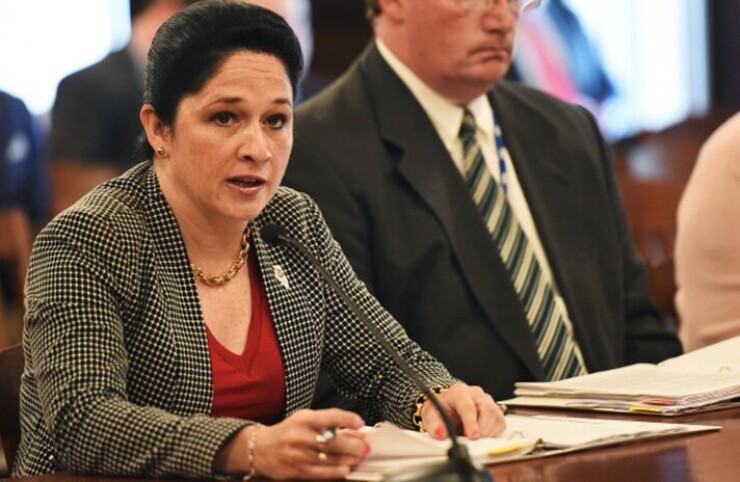Illinois rainy-day fund tops $2 billion for first time
2 min read

Illinois’ rainy-day fund crossed the $2 billion threshold for the first time, following an $11.5 million deposit, the state comptroller’s office announced Monday.
The fund has grown in size in recent years and now, at $2.005 billion, has enough money to run the sixth largest state for about 15 days compared to 2017 when it had just $48,000, which was not enough to keep state operations going for half a minute, according to the announcement.
Illinois is still lagging half the states that have at least a 50-day reserve, it added.
“Whatever you think Illinois’ most important program is — funding our schools, policing our highways, caring for the elderly — that program is in jeopardy when a crisis strikes if Illinois has not built up a strong reserve,” Illinois Comptroller Susana Mendoza said in a statement.
She said House Bill 2515, which stalled in the legislature this year, will be reintroduced next year. The measure would set automatic triggers for regular deposits to the rainy-day fund.
Mendoza added that the heftier reserve contributed to Fitch Ratings’ recent upgrade of the state to A-minus from BBB-plus ahead of a Nov. 28 competitive sale of $875 million of general obligation bonds.
The upgrade completed Illinois’ return to the single-A category after Moody’s Investors Service and S&P Global Ratings boosted their ratings earlier this year. The state had teetered on the cusp of junk in the wake of a two-year budget impasse that ended in 2017.
Last week, Gov. J.B. Pritzker’s Office of Budget and Management released a five-year economic forecast that raised projected fiscal 2024 revenue by $1.4 billion amid strong corporate and sales tax collections, although the increase would be partially offset by about $1 billion in spending pressures that include costs related to asylum seekers.
While the current fiscal year is expected to end with a $422 million general funds surplus, deficits ranging from $891 million to $1.66 billion are forecast over the next five fiscal years.
The upcoming three-part GO bond deal includes $175 million of taxable bonds maturing between 2024 and 2028 with proceeds funding the state’s ongoing accelerated pension benefit program, according to the deal’s roadshow. The remaining $700 million of tax-exempt bonds are earmarked for capital spending and are due in $35 million increments between 2029 and 2048.







